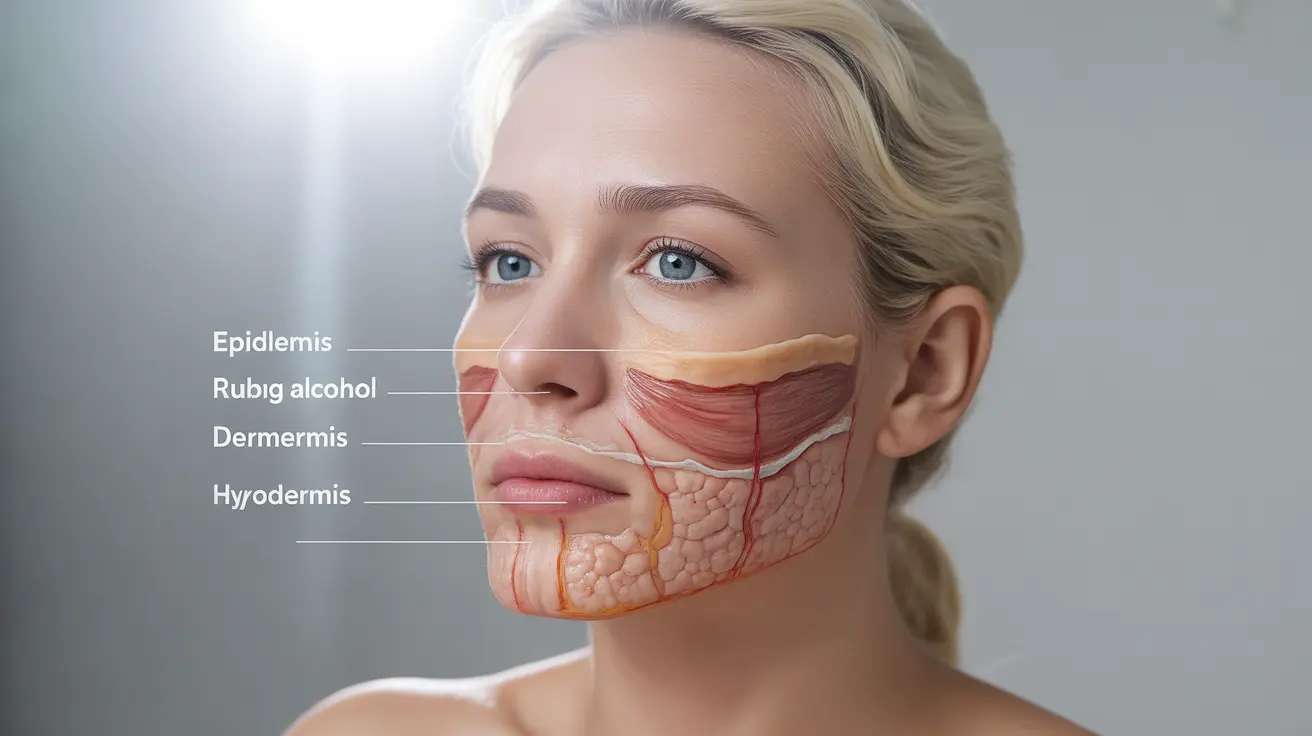Many people searching for quick acne solutions might consider using rubbing alcohol on their face, attracted by its antiseptic properties and accessibility. However, this common household item can potentially cause serious damage to your skin when applied directly to facial tissue. Understanding the risks and implications of using rubbing alcohol as a skincare solution is crucial for maintaining healthy skin.
Before reaching for that bottle of rubbing alcohol to tackle your acne concerns, it's essential to learn about its effects on facial skin and explore safer, more effective alternatives for acne treatment.
How Rubbing Alcohol Affects Your Facial Skin
Rubbing alcohol, or isopropyl alcohol, is a powerful antiseptic that can effectively kill bacteria. However, its harsh nature makes it particularly problematic for facial application. When applied to the face, rubbing alcohol can:
- Severely dry out the skin
- Disrupt the natural pH balance
- Strip away essential natural oils
- Compromise the skin's protective barrier
- Cause irritation and inflammation
The Impact on Your Skin's Protective Barrier
Your skin's protective barrier, also known as the acid mantle, plays a crucial role in maintaining healthy skin. This delicate barrier helps retain moisture, prevents bacterial invasion, and protects against environmental damage. Rubbing alcohol can severely compromise this essential defense mechanism.
Immediate Effects on Facial Skin
When rubbing alcohol comes into contact with facial skin, it can cause:
- Immediate burning or stinging sensation
- Redness and irritation
- Excessive drying
- Peeling and flaking
- Increased sensitivity
Long-term Consequences
Regular use of rubbing alcohol on facial skin can lead to:
- Chronic dryness and dehydration
- Increased oil production (as skin tries to compensate)
- Enhanced susceptibility to breakouts
- Premature aging signs
- Persistent irritation and sensitivity
Better Alternatives for Acne Treatment
Instead of using rubbing alcohol, consider these safer and more effective alternatives for treating acne:
- Salicylic acid products
- Benzoyl peroxide treatments
- Tea tree oil-based solutions
- Gentle, non-comedogenic cleansers
- Over-the-counter acne medications
These alternatives work effectively against acne while maintaining your skin's natural balance and health.
Frequently Asked Questions
Is it safe to use rubbing alcohol on the face to treat acne?
No, it is not safe to use rubbing alcohol on your face to treat acne. While it may kill bacteria, it's too harsh for facial skin and can cause severe irritation, dryness, and damage to your skin's protective barrier.
What are the side effects of applying rubbing alcohol on facial skin?
Common side effects include severe dryness, irritation, redness, burning sensation, increased sensitivity, and potential breakouts. Long-term use can lead to chronic skin problems and compromised barrier function.
Does rubbing alcohol effectively kill acne-causing bacteria?
While rubbing alcohol can kill bacteria, including acne-causing bacteria, its harsh nature causes more harm than good. The damage it inflicts on your skin's protective barrier can actually lead to more breakouts in the long run.
What are better alternatives to rubbing alcohol for treating acne?
Better alternatives include products containing salicylic acid, benzoyl peroxide, or tea tree oil. These ingredients effectively target acne while being gentler on your skin. Always choose products specifically formulated for facial use.
How can rubbing alcohol damage the skin's protective barrier?
Rubbing alcohol strips away the skin's natural oils and disrupts its pH balance, compromising the protective barrier. This can lead to increased sensitivity, dehydration, and vulnerability to environmental damage and bacterial invasion.
Remember, while the search for quick acne solutions is understandable, it's crucial to choose treatments that maintain your skin's health while addressing breakouts. Always consult with a dermatologist for personalized acne treatment recommendations.




